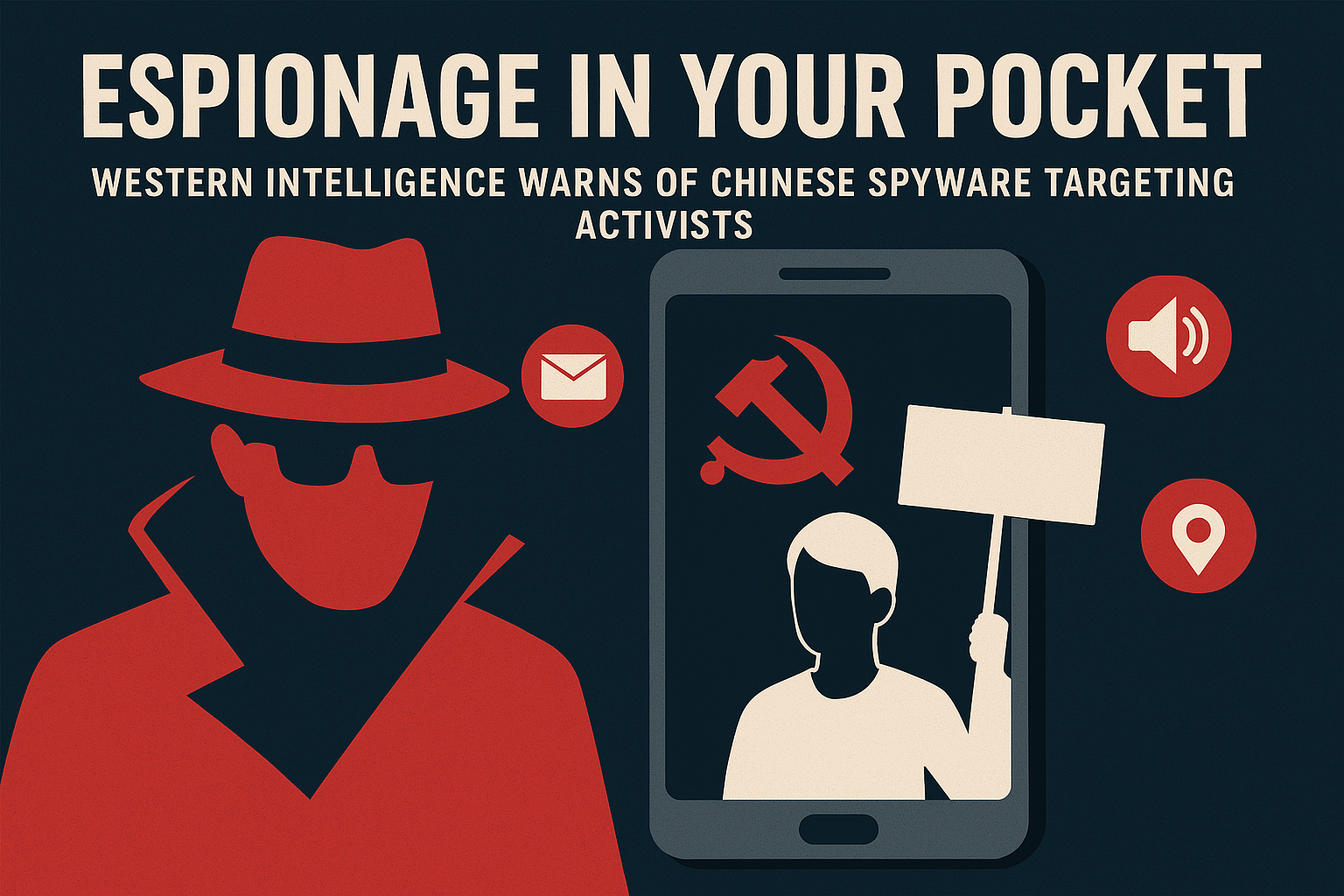📡In a chilling development for digital privacy and human rights, Western intelligence agencies have jointly issued an advisory warning about an expanding Chinese spyware campaign targeting political dissidents, activists, and ethnic minorities across the globe.
This warning backed by intelligence organizations from the United States, Canada, Germany, and the Netherlands highlights the use of sophisticated spyware, namely BADBAZAAR and MOONSHINE, believed to be operated by Chinese state-linked groups.
🎯Who’s Being Targeted?
The spyware campaign appears to be surgically focused on:
- Taiwanese independence activists
- Tibetan and Uyghur rights advocates
- Critics of the Chinese Communist Party (CCP)
- Ethnic minorities in China and overseas
- International human rights defenders and NGOs
This marks a notable escalation in China’s use of digital surveillance as a weapon of political suppression, extending far beyond its borders.
🧠 How the Spyware Works
The attack vectors rely heavily on social engineering and covert delivery via mobile applications. Here’s a breakdown of their tactics:
- Malicious Android and iOS apps disguised as innocent tools like messaging or file-sharing platforms.
- Apps capable of:
- Recording microphone audio
- Interacting with SMS messages
- Extracting contacts and location data
- Remotely activating the camera
- Some variants even survive factory resets and use advanced obfuscation to bypass detection.
This spyware gives threat actors real-time surveillance capabilities, turning phones into portable spy devices.
🌍 Global Implications
What makes this campaign particularly alarming is its cross-border reach. This is not a localized issue—it has international ramifications:
- Digital espionage on foreign soil violates international norms.
- Suppression of free speech through technology undermines democracy.
- The campaign may discourage activism through fear of surveillance, even in democratic nations.
Western officials describe this as a “transnational repression campaign”, where digital threats are used to silence voices well beyond China's geographic influence.
🔐 What You Can Do
If you're an activist, journalist, or privacy-conscious user, here are steps to stay safe:
- Avoid sideloading apps or using unofficial app stores.
- Use open-source privacy tools vetted by the cybersecurity community.
- Update your devices regularly, patches matter.
- Be cautious of app permissions, especially those requesting access to contacts, camera, or microphone.
- Use end-to-end encrypted messaging apps like Signal or Element.
🕵️ Final Thoughts
This revelation is a stark reminder that the battle for human rights and freedom now plays out digitally. Our smartphones are not just communication devices they’re also potential battlegrounds for global espionage.
Governments and civil society must not only condemn this behaviour but also invest in better cybersecurity infrastructure and awareness campaigns.
The war for privacy isn’t just at your doorstep it’s already in your pocket.

